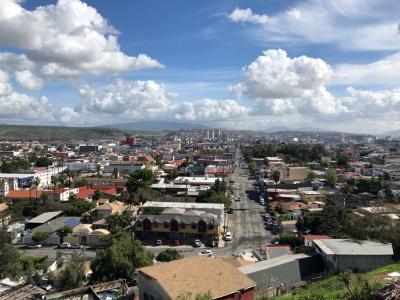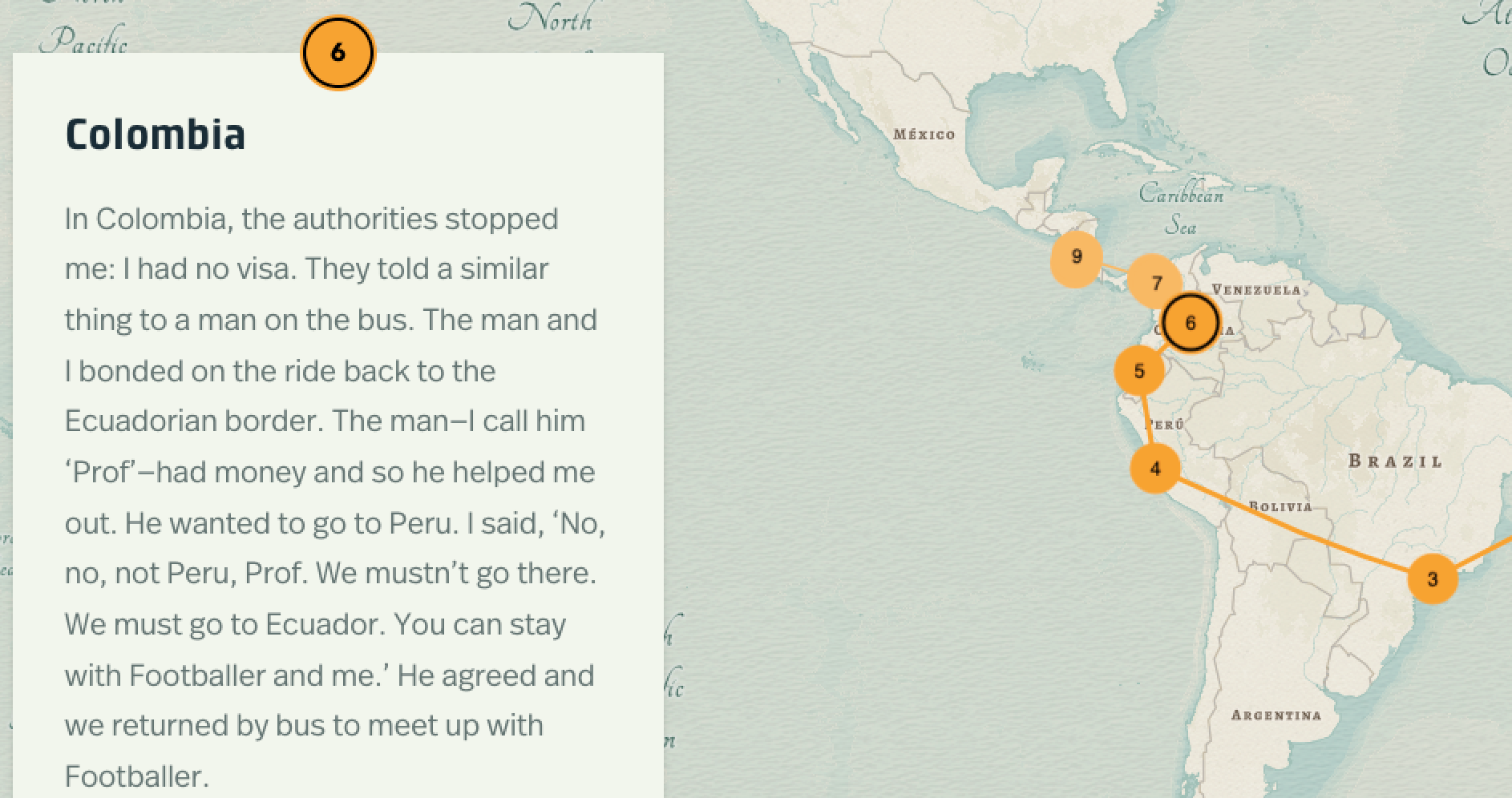Leir Migration Monitor: "We leave it all behind because we have to."

Hopes, Fears, and Illusions: notes from the field
Our research teams have concluded six weeks of volunteering with local partners and interviewing migrants in Mexico, Costa Rica, and Colombia. As the testimonies reveal, migrants usually leave their homes reluctantly, out of desperation, and with remarkably little information about what lies ahead. They also rely heavily on their faith and love for their children to sustain them on these perilous journeys. At the same time, we have found notable contrasts between the different sites. Read more in our new entry.
- In Tijuana, a 24-year-old male from Guatemala shared, "One hears the news that they kill you, they kidnap you, you are left in the desert. But one has to take the risk. So, yes, I was informed about this, but even so I wanted to attempt [the journey]."
- In Tapachula, Allyson writes, "We have learned about a network of migrants who have already crossed into the United States and who share their stories and experiences with those waiting out their process in the shelter."
- In Costa Rica, Diana writes, "One migrant we chatted with informally demanded that the jungle be closed, and that new and safe pathways be created to avoid the deaths of innocent people. He had no information on the difficulty of the jungle before he entered. He ran out of food and went days without eating."
- In Colombia, Laura describes the coexistence of humanitarian organizations and armed groups, stating, "There is a network that controls every movement here, even though it is not visible."
Stay up to date on our research here:

Children on the Margins: The Impacts of Depriving Children of their Right to Nationality and Legal Identity in Northwest Syria
A new report by the Fletcher International Law Practicum in partnership with the Norwegian Refugee Council finds that hundreds of thousands of children living in opposition-held areas in Northwest Syria are being denied access to their rights to nationality and legal identity, resulting in profound deprivations of their most basic rights.
Based on in-depth research supervised by affiliated faculty Christine Bustany, this report documents the many deprivations experienced by children in Northwest Syria that flow as a result of not having access to their nationality and legal identity, features case studies, and provides recommendations on how to address these fundamental children’s rights violations.

Mapping Migrants, Mapping Money: A blind mother flees political persecution and 'juju' in Cameroon
Continuing the Journeys Project's series of financial biographies illustrated via StoryMaps, this story details Princess's journey fleeing Cameroon, where political persecution, fear of ritual spells, and economic survival propelled Princess toward the United States. When our team interviewed her in Costa Rica, she had found her way through Brazil, Peru, Ecuador, Colombia, and Panama, remaining steadfast in her determination to reach the U.S.
Once in São Paulo, the authorities kept me for one week at the airport. I slept on a bench while they questioned me. But, really, though I did not like being in detention, they were very nice and fed me three meals a day. I kept saying, ‘If you return me to Cameroon, you have killed me.’

Germany's la Petite Russie: Russian émigrés' exodus to metropolitan Berlin
In Refugees in Towns' latest case report, Dr. Olga R. Gulina identifies the technical aspects of securing German legal status and the emotional impacts of settling in Berlin. It highlights the experiences of a particularly vulnerable group of émigrés, LGBT Russians, and finds that despite the relative ease of settling in Germany’s capital, the uncertainty of being chased away from home remains. This case report was produced in collaboration with the Fletcher School’s Russia and Eurasia Program.

Spotlight: Joy Olson, Leir Senior Fellow

We are pleased to welcome Joy Olson as a new Leir Senior Fellow. A leading expert on human rights and U.S. policy toward Latin America, Joy formerly served as Executive Director of the Washington Office on Latin America (WOLA) from 2003-2016. Under her direction, WOLA pioneered new approaches to human rights advocacy, focusing on the underlying causes of injustice, inequality, and violence. Joy's special expertise is in the area of military and security policy. She co-founded the Just the Facts project, which makes information about U.S. military policy in Latin America publicly accessible. For more than a decade, she has co-authored an annual study on trends in U.S. security assistance.
Prior to joining WOLA, Joy directed the Latin America Working Group (LAWG), a coalition of sixty non-governmental organizations working to promote peaceful and just U.S. foreign policy toward the region. She earned a Masters in Latin American Studies from the National Autonomous University of Mexico, following two years’ work in community development in Honduras.
I'm working on: Understanding the role that the concept of hope plays in the decision to migrate. Also, I want to better understand what triggers migration, beyond the traditional root causes. What makes people decide that now is the moment to make the journey. I’m also very interested in the relationship between organized crime and migration.
An insight I discovered: to be able to understand the scale of migrant kidnapping (in Mexico) and extortion (in the US) a conduit for reporting must be established.
I'm passionate about: family, friends, kayaking, supporting colleagues in Latin America doing human rights work, and the upcoming elections in the US.
Moving forward, you can find our content at www.leirbrief.org.


